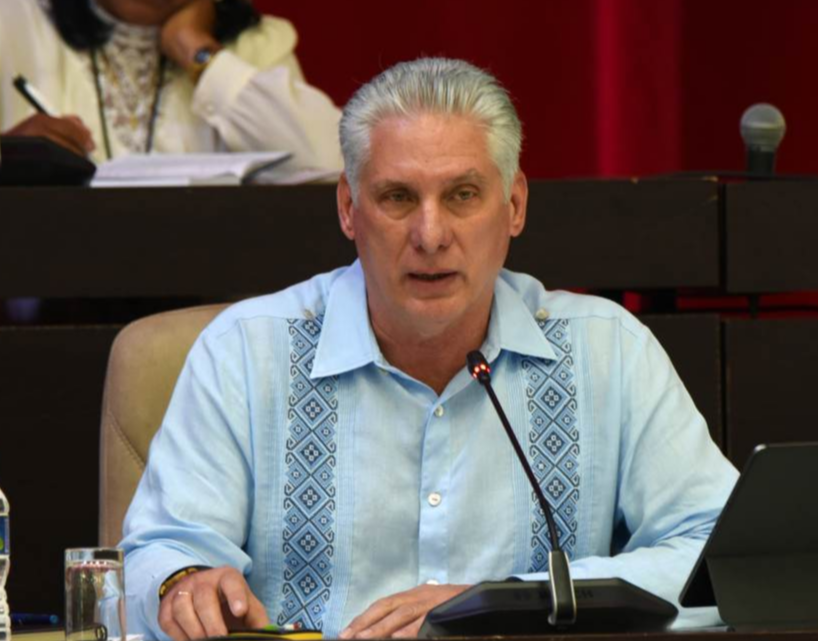The First Secretary of the Central Committee of the Communist Party of Cuba and President of the Republic, Miguel Díaz-Canel reaffirmed Wednesday that the economy is a priority in the actions promoted by both the leadership of the Communist Party and the government.
Addressing the deputies of the National Assembly of People’s Power (Parliament), during the day before the second extraordinary session of the tenth legislature, the president described the tense economic and social situation of the island.
The same is marked by an acute global crisis after the Covid-19 pandemic, which deepened international differences and conflicts, to which is added the US economic blockade, intensified with more than 240 coercive measures and the inclusion in the list of countries that allegedly sponsor terrorism.
Díaz-Canel pointed out as another element to be taken into account, the complex demographic scenario of the country, with an accelerated population aging and less and less economically active population.
In the midst of these variables, the Caribbean nation is not renouncing to economic development, but for this it is necessary to advance in the macroeconomic stabilization plan, which includes actions to counteract inflation, reduce the fiscal deficit, overcome the gaps between wages and purchasing power, increase the availability of foreign currency, among other issues.
He added that work is being done to promote local food production, but this is one of the dissatisfactions that persist, since the need for it has not been understood at the base.
“Today, the main way for the population to have access to food is the basic food basket supplied by the State, which is based on imports, when many of these items could be produced in the national territory”, he added.
He underscored the importance of recovering the role of the state agricultural enterprise, something that would not only have an impact on increasing the supply, but also on the regulation of prices and the reduction of the chain of intermediaries.
In general, he pointed out as a priority investments in food production, with national and foreign capital, as well as the implementation of several ideas foreseen in the food sovereignty and nutritional education program.
He also referred to the high prices, whose attention demands more production and better contracting, but also confronting speculation, enrichment and illegal sales.
He commented that other lines of work are the development of sustainable local tourism, the expansion of travelers’ markets and the diversification of tourist offers.


